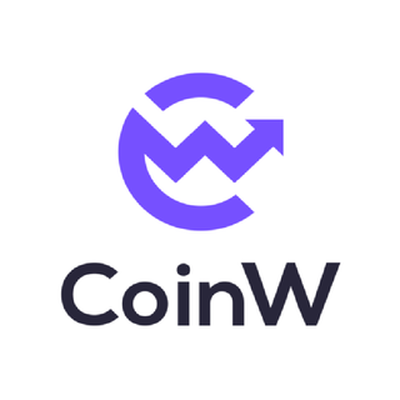Innovations in Gaming and Blockchain Technology
Cuerpo
The gaming industry has evolved tremendously over the years, with advancements in graphics, gameplay mechanics, and online multiplayer experiences. However, one of the most significant technological shifts in gaming today is the integration of blockchain technology. Blockchain is changing how players interact with games, own digital assets, and even earn money through gaming.
Unlike traditional gaming models, where assets and currencies are controlled by developers and centralized servers, blockchain gaming introduces decentralization, transparency, and financial opportunities for players. With features such as true asset ownership, play-to-earn models, decentralized gaming platforms, interoperability, and enhanced security, blockchain technology is opening new frontiers in gaming.
This article explores these innovations in detail and discusses their impact on players, developers, and investors, shaping the future of the gaming industry.
True Ownership of In-Game Assets
In traditional gaming, players spend money to purchase in-game items such as skins, weapons, or virtual land. However, these assets remain under the control of the game developers, meaning that players cannot transfer them outside the game, sell them freely, or use them in other gaming ecosystems. If a game shuts down, all purchased assets disappear, leaving players with nothing to show for their investment.
Blockchain technology solves this problem by introducing Non-Fungible Tokens (NFTs), which allow players to truly own their in-game assets. These digital assets exist on a decentralized ledger, meaning they can be bought, sold, or traded on external marketplaces without restrictions from the game developer.
Benefits of NFT-Based Ownership in Gaming
- Monetization Opportunities: Players can sell rare in-game items on NFT marketplaces for real-world currency.
- Cross-Game Usability: Some blockchain-based gaming ecosystems allow NFTs to be used across different games.
- Security and Transparency: Because all transactions are recorded on the blockchain, ownership is secure and verifiable.
Example: Axie Infinity
Axie Infinity, one of the most well-known blockchain games, allows players to collect, breed, and trade NFT-based creatures called Axies. Some Axies have been sold for thousands of dollars, turning casual players into entrepreneurs within the game’s ecosystem.
Play-to-Earn (P2E) Models
The play-to-earn (P2E) gaming model has gained popularity as one of blockchain gaming’s most exciting innovations. Unlike traditional games, where players pay to unlock content, blockchain-based games reward players with cryptocurrency or NFTs for participating in various in-game activities.
How Play-to-Earn Works
- Players earn in-game currency or NFTs by completing quests, battling other players, or contributing to the game’s economy.
- These digital assets can be exchanged for real money or used to purchase other in-game items.
- Some blockchain games introduce staking mechanisms, where players can lock their assets to earn passive rewards over time.
- Players can trade their earned cryptocurrencies on platforms like CoinW spot trading to convert their gaming rewards into fiat or other cryptocurrencies for further investment.
Example: The Sandbox and Decentraland
In The Sandbox and Decentraland, players can buy virtual real estate, build digital experiences, and monetize their creations. Users have sold virtual properties for thousands of dollars, proving that digital land can have real-world value.
Impact of P2E Games
Play-to-earn gaming has been particularly revolutionary in developing countries, where players can generate income simply by playing games. Many gamers in Southeast Asia, for example, have turned P2E games into full-time jobs.
Decentralized Gaming Platforms
Traditionally, games are operated by centralized companies that control everything, from game mechanics to in-game economies. Players have no say in how a game evolves, and changes made by developers can negatively impact the gaming experience.
With blockchain technology, games can operate on decentralized platforms, where players and stakeholders govern the game through community-driven decision-making.
Key Features of Decentralized Gaming
- Decentralized Autonomous Organizations (DAOs): Some blockchain games allow token holders to vote on game updates, ensuring that player interests are prioritized.
- Smart Contracts: These self-executing programs help automate transactions and enforce game rules transparently.
- Censorship Resistance: Since the game’s data is stored on a blockchain, it cannot be taken down by a single entity.
Example: BinaryX
BinaryX is an online gaming platform that focuses on cryptocurrency and blockchain-based games. It offers a comprehensive service platform for developers, including an NFT trading market, an Initial Game Offering (IGO) platform, and a high-speed sidechain optimized for GameFi business. The platform's native token, BNX USDT, is used for various purposes such as in-game currency, DAO governance, and token swaps. BinaryX aims to support the growth and development of the GameFi industry by providing a robust and efficient ecosystem for developers and players alike.
Why This Matters
Decentralized gaming platforms shift power away from developers and give players more control over their gaming experiences. This approach ensures fairness and prevents companies from making unfair changes that negatively affect players.
Interoperability and Cross-Game Assets
One of the major limitations in traditional gaming is that digital assets are locked within a single game. A player who spends time collecting skins, weapons, or characters in one game cannot transfer them to another.
Blockchain introduces interoperability, allowing digital assets to be used across multiple games. This means that an NFT sword acquired in one game could be used in another game that supports the same blockchain standard.
How Interoperability Works
- NFT-based items can be carried across different gaming ecosystems.
- Gaming metaverses connect various blockchain games into a unified experience.
- Blockchain standards such as Enjin’s ERC-1155 allow game assets to function across multiple platforms.
Example: Enjin’s Cross-Game NFT System
Enjin is developing a blockchain ecosystem that supports multi-game NFT functionality. Players can own assets that are usable across multiple Enjin-powered games, increasing their real-world value and utility.
Why Interoperability is a Game-Changer
Interoperability enhances the value of digital assets by allowing them to exist beyond a single game. It also paves the way for the creation of massive interconnected gaming metaverses.
Enhanced Security and Fraud Prevention
Fraud, hacking, and cheating are widespread problems in online gaming. Traditional gaming systems rely on centralized databases, making them vulnerable to attacks. Blockchain technology provides a solution by securing game data on an immutable, decentralized ledger.
Security Advantages of Blockchain Gaming
- Immutable Records: Transactions and asset ownership cannot be altered or deleted.
- Fair Play Assurance: Smart contracts automate game mechanics, preventing cheating.
- Fraud Prevention: Blockchain prevents scams by verifying transactions in a transparent way.
Example: Immutable X
Immutable X is a layer-2 solution for Ethereum that enables secure, gas-free transactions for blockchain games. It helps developers build games with scalable and fraud-proof economies.
Why Security Matters in Gaming
Blockchain’s security features ensure that players and developers can trust the game’s economy, preventing unfair advantages and fraudulent activities.
The Future of Blockchain Gaming
Although blockchain gaming is still evolving, the future looks promising. Several trends and advancements are expected to shape the industry:
- Mass Adoption by AAA Studios – Major gaming companies like Ubisoft and Square Enix are exploring blockchain integration.
- AI and Blockchain Synergy – AI-driven game mechanics will complement blockchain technology.
- Scalability Improvements – Layer 2 blockchains will make transactions faster and cheaper.
- Sustainability Solutions – Eco-friendly blockchain solutions will reduce environmental concerns.
Why This Matters for Players, Developers, and Investors
Blockchain gaming is not just a passing trend—it is a fundamental shift in how games are built, played, and monetized.
- For Players: Enjoy true ownership, earn real money, and participate in fairer gaming economies.
- For Developers: Create transparent, player-driven gaming experiences with new monetization opportunities.
- For Investors: Invest in blockchain gaming projects with high-growth potential.
As blockchain continues to revolutionize gaming, players, developers, and investors should explore its opportunities to stay ahead in this rapidly evolving industry. The future of gaming is decentralized, transparent, and full of potential. Now is the time to be part of the change.









Comentarios